
Why Is Gut Health Important?
Seeing as the United States digestive health market has nearly tripled in size within the last decade, chances are you’ve heard a thing or two about the importance of gut health (unless you’ve been hibernating — which, fair).
From your immune and nervous systems to your digestive function and mental health, your gut health — how well you digest, absorb, and metabolize nutrients and eliminate waste byproducts — plays a pivotal role in your overall well-being.
That said, what exactly does “gut health” mean, and why should we pay attention to it?
You have questions, and we have answers. Read on to discover our complete guide on gut health.
What Is Gut Health?
According to experts, gut health describes the balance and function of bacteria in the many parts of the GI tract (AKA gastrointestinal tract). In a perfect world, organs like the stomach, esophagus, and intestines all work together to allow digestion without discomfort. But that’s not the reality for the estimated 70 million people in the United States with digestive issues.
What Exactly Is the Gastrointestinal Tract?
Also known as the “gut” and digestive tract, the GI tract includes your:
- Mouth
- Esophagus
- Stomach
- Small intestine
- Pancreas
- Liver
- Gallbladder
- Colon
- Rectum
That said, when most people talk about “gut health,” they’re usually referring to the trillions of bacteria in the gut microbiome and the delicate balance between the “good” and “bad” microorganisms (AKA gut flora).
In short, various communities of microorganisms — or microbes — live throughout the human body, each making up its own unique microbiome.
Most microbes in the body reside in the gut, with the largest numbers found in the small and large intestines. In fact, some studies show that there may be more than 1,000 species of bacteria in the human gut microbiome. We know *mind blown*
These itty-bitty gut bugs are critical to your health. They play a key role in digesting the food you eat and help with absorbing and synthesizing nutrients, too. But that’s not all — the bacteria that live in your digestive tract are also involved in several essential processes that extend well beyond the gut, including:
- Energy production
- Brain function
- Mood
- Metabolism
- Immune system regulation
To maintain good gut health and keep these processes functioning optimally, it’s of the utmost importance to have a healthy balance of microbes. In other words, diversity is key.
What Are the Signs of an Imbalance?
When your body doesn’t have enough good gut bacteria, bad gut bacteria can thrive. This condition is called dysbiosis. Signs of a gut bacteria imbalance include:
Sign #1: You have a sour stomach
Tummy troubles like bloating, abdominal pain, constipation, diarrhea, and heartburn can all be indicators of an unhealthy gut. Flare-ups of IBS (irritable bowel syndrome) or Crohn’s disease may also indicate an imbalance in your gut.
Sign #2: You’re especially moody
Gut issues and inflammation in the nervous system may lead to anxiousness and mood swings.
Sign #3: Your skin is acting up
A gut imbalance may be to blame for skin problems, such as rosacea, psoriasis, eczema, and acne.
Sign #4: You’re intolerant to certain foods
Believe it or not, some food intolerances may result from low bacteria diversity in the gut. This can lead to nausea, cramps, and bloating after eating certain foods.
Sign #5: You feel exhausted
An imbalanced digestive system can have a difficult time regulating serotonin, which can affect your ability to get a good night’s rest. This can leave you feeling exhausted during the day.
How Does Gut Health Influence Overall Health and Wellness?
Having a healthy balance of good and not-so-good gut bugs is imperative. An imbalance most often leads to malabsorption issues and chronic illnesses, causing constipation, belly bloat, and even mood swings.
A healthy gut communicates with the brain through the neural network using hormones — AKA the gut-brain axis.
Your gut and brain are connected through millions of nerves, especially the vagus nerve. Your gut microbiome also controls inflammation and makes many different compounds that can affect brain health.
In simpler terms, the bacteria that live in your gut don’t just impact your digestive health but your cognition and emotional health as well.
What Factors Affect Gut Health?
By now, you know that a balanced gut microbiome is key for optimum health, but what factors can cause an imbalance? Although many things can contribute to poor gut health, some of the most common include:
- Stress can increase intestinal permeability (aka, leaky gut), leading to a bacterial imbalance.
- A poor diet full of processed foods and sugar can harm the beneficial bacteria in your gut while causing swelling and irritation throughout the body.
- Long-term antibiotic use can kill the good bacteria that live in the gut. Of course, there’s always a time and place for these important medications, so if your doctor instructs you to take them, be sure to replenish the beneficial bacteria with a high-quality probiotic — Like Gut Feelings Probiotics.
Top Tips To Improve Gut Health
A balanced gut means you have a better mood, stronger immunity, effective digestion, and a healthy brain. With that in mind, here are some tips and tricks to help you improve the health of your gut:
Tip #1: Keep Stress in Check
High levels of stress are not nice to your body — including your gut. To manage stress and support good digestive health, consider meditation, yoga, or breathing exercises. Take a soothing bath, light a few candles, and try to get in some R&R. #SelfCare
Tip #2: Catch Quality Zzzs
Not getting enough shut-eye can have serious impacts on your gut health — which, in turn, can lead to sleep issues. Try your best to prioritize seven to nine hours of deep, restful sleep every night to keep your digestive tract in tip-top shape.
Tip #3: Drink Plenty of H2O
Water is a key player when it comes to digestion. Not only does it support bacterial balance, but drinking plenty of H2O has a beneficial effect on the mucosal lining of the intestines. To support optimum health, men should aim to drink 125 ounces of water per day, while women should aim to drink 91 ounces of water per day.
Tip #4: Take a Probiotic
Probiotics are chock-full of live microorganisms that will help to populate your gut with friendly bacteria. Although there are many probiotic supplements available on the market, we suggest our Probiotic Kit — a healthy dose of probiotics for your gut, skin, and vagina.
This powerful trio supports your gut in processing preservatives in food, environmental factors, antibiotics, and other potential culprits that can disrupt your digestive tract.
- Gut Feelings Probiotics supports digestion and promotes regularity
- Good Girl Probiotics maintains overall vaginal health (from pH to yeast)
- Clear Skin Probiotics supports gut-skin connection to help combat acne
Simply take one serving of each supplement daily to give your friendly gut bugs the support they need to thrive. Easy-peasy!
Tip #5: Steer Clear of the Sweet Stuff
According to recent research, eating too much sugar or artificial sweeteners can lead to a gut imbalance. Experts believe that certain sugars increase the number of harmful bacterial strains that are linked with metabolic disease. But, that’s not all:
Experts also say that human use of artificial sweeteners can negatively impact blood sugar levels due to their effects on gut flora. In simpler terms, artificial sweeteners may increase blood glucose— despite not being real sugar.
Of course, sugar in moderation is A-OK, but just be sure to keep it to a minimum and load up on fiber-rich foods, too. Remember, balance is key!
Tip #6: Sip Some Polyphenols
According to one study, researchers found that drinking red wine and black tea could boost the bacterial composition in the gut. That’s because — like dark chocolate — wine and tea contain beneficial microbe-feeding polyphenols.
Other foods that are rich in polyphenols include:
- Almonds
- Onions
- Blueberries
- Red grapes
- Broccoli
Tip #7: Exercise on the Reg
Working out isn’t only a great way to reduce stress, but studies show that it induces positive changes in the gut microbiota composition, too.
Aim to get in at least 150 minutes of aerobic exercise each week along with muscle-strengthening activities on two or more days each week. Be sure to drink plenty of water to replenish the fluids you lose through sweat to help keep dehydration at bay.
Tip #8: Eat More Fiber
Sure, fiber may be indigestible to humans, but your gut microbiome thrives on it! When your gut bugs consume fiber, they produce tiny compounds called short-chain fatty acids — or SCFAs for short. These compounds support the health and integrity of your gut lining.
Some of the best high fiber foods that you can eat to support your gut include:
- Raspberries
- Lentils
- Beans
- Artichokes
- Broccoli
- Chickpeas
- Whole grains
- Bananas
- Apples
- Asparagus
In addition to fiber-rich foods, fermented foods — like kimchi, sauerkraut, kombucha, tempeh, miso, and kefir — are also a great choice to support good gut health.
Bottom Line
All food is ultimately broken down in the gut before it can enter the bloodstream, where it is then delivered as nutrients throughout the body. This, however, is only possible with a healthy gut.
A healthy gut is home to trillions of bacteria and immune cells that fight off infectious pathogens to prevent illness and disease. When your gut is balanced, it also communicates efficiently with your brain through nerves and hormones that help to maintain good health and overall well-being.
So, why is gut health important, you ask?
Simple; the gut is the foundation of everything. It aids in digestion, absorbs nutrients, and uses it to fuel and maintain the body. When the gut is imbalanced, the entire body will be impacted— hence why many experts call it the second brain.
Here at Love Wellness, we create natural solutions for natural problems. Why? Because we experience them too, that’s why! Whether you’re struggling with an unhappy gut, hoping to soothe belly bloat, or on a mission to support your delicate vaginal flora — you can always count on us to have your back.
Check us out today and see how we can help you start feeling good tomorrow. Trust us — you’ll be glad you did!
Sources:
IFIC Survey: Consumer Insights on Gut Health and Probiotics | Food Insight
Digestive Diseases Statistics for the United States | NIDDK
Gut Microbiome - an overview | ScienceDirect Topics
How Much Water Should You Drink a Day? | Health Cleveland
Artificial sweeteners induce glucose intolerance by altering the gut microbiota | Pub Med
The Role of Polyphenols in Human Health and Food Systems: A Mini-Review | PMC
Shop Our Founder's Favorites Wellness Products
-
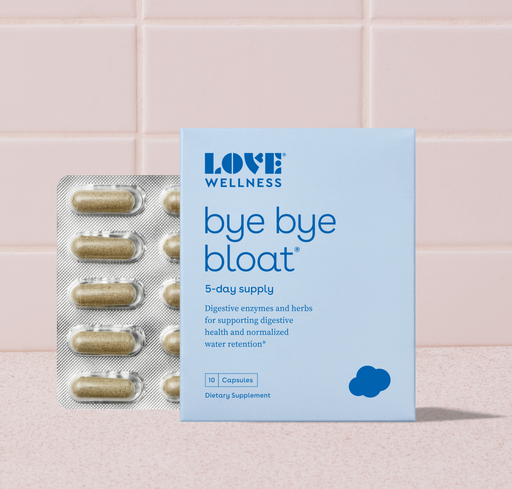 NEW!
NEW!Bye Bye Bloat® Travel Size
Alleviates bloating fast*
$8.99 One-time PurchaseA blend of digestive enzymes and herbs that alleviates bloating fast.* - Gluten-Free & Dairy-Free - Take 1-2 capsules after a meal or before b...
View full details -
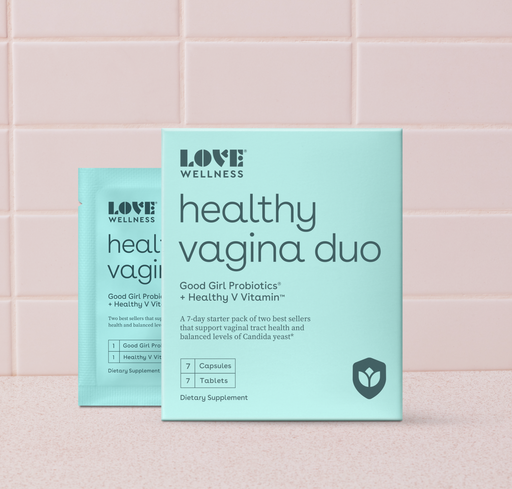 NEW!
NEW!Healthy Vagina Travel Kit
Supports vaginal & urinary tract health*
$16.99 One-time Purchase- 7-day supply — perfectly sized to take on the go so you can keep your routine up when you’re not at home! - Good Girl Probiotics®: Helps to maint...
View full details -
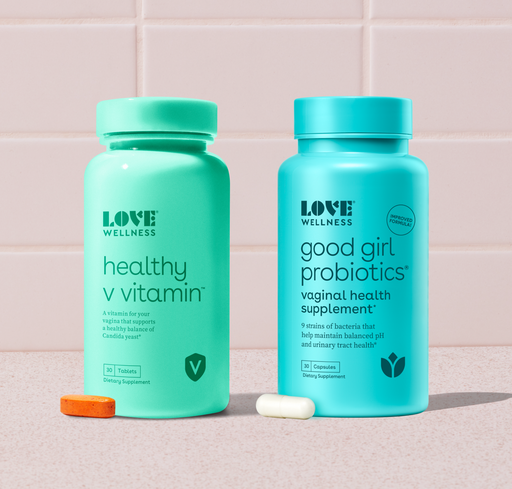

Healthy Vagina Bundle
Supports vaginal & urinary tract health*
$35.24 Subscribe & Save$46.99 One-time PurchaseFor vaginal & urinary tract health. HOW IT WORKS Together, this powerful duo supports your vaginal health by balancing bacteria and yeast. Go...
View full details -
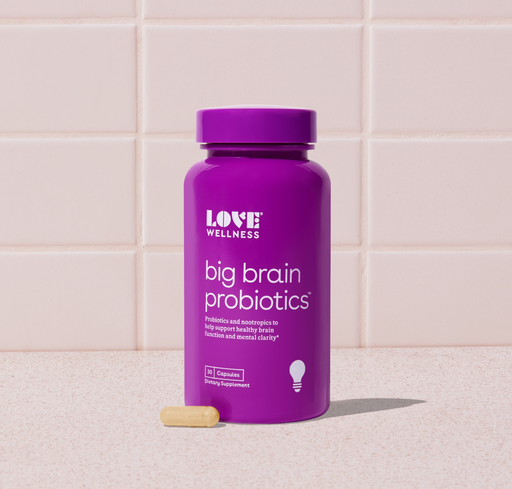
Big Brain Probiotics®
Helps support brain function*
$22.49 Subscribe & Save$29.99 One-time PurchaseA blend of probiotics and nootropics to help support brain function, cognitive health, and help maintain a healthy mood and sense of calm.* - Vegan...
View full details -
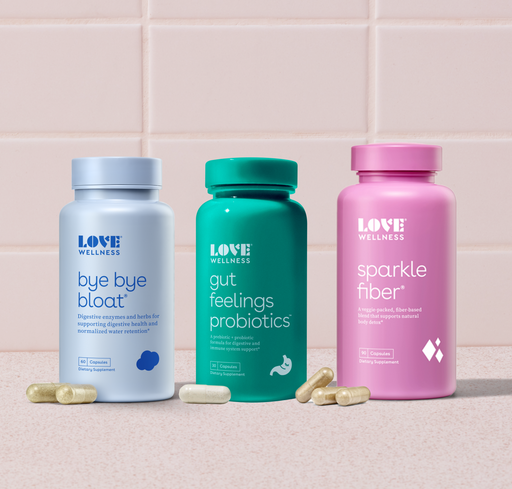

Bloating Bundle
Helps boost your gut health*
$54.74 Subscribe & Save$72.99 One-time PurchaseBeat bloat with this combo of fiber, digestive enzymes, and probiotics that naturally boost your gut health.* gut, bloating, gas, reflux, probiot...
View full details -
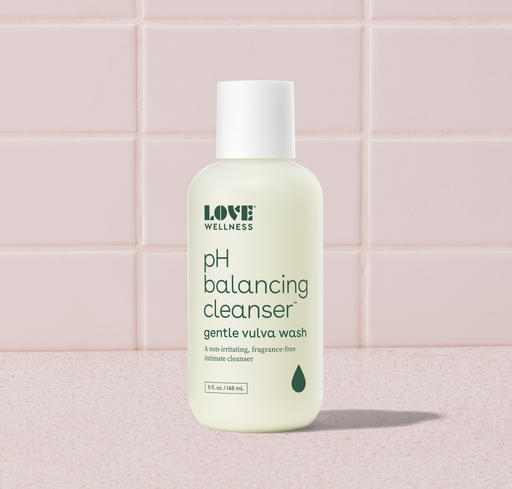
pH Balancing Cleanser™
Gently cleanses your vulva
$11.24 Subscribe & Save$14.99 One-time PurchaseA fragrance-free, gentle cleanser for your vulva to help maintain a balanced vaginal microbiome. - Gluten-Free, Dairy-Free, Vegan - Apply to wet s...
View full details -
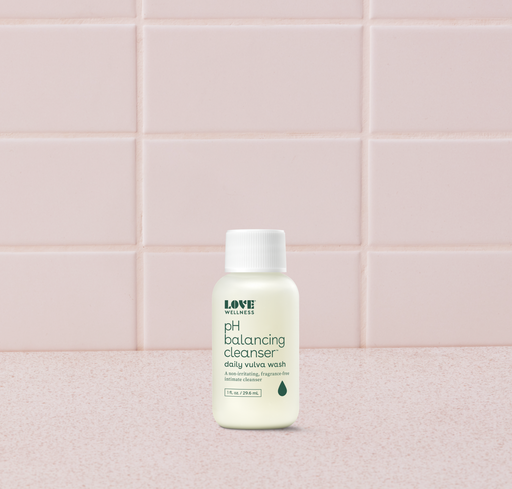 NEW!
NEW!pH Balancing Cleanser™ Travel Size
Gently cleanses your vulva
$4.99 One-time PurchaseA fragrance-free, gentle cleanser for your vulva to help maintain a balanced vaginal microbiome. - Gluten-Free, Dairy-Free, Vegan - Apply to wet s...
View full details -
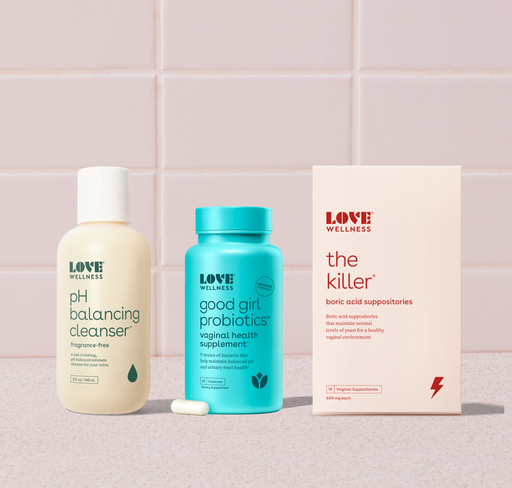

Vaginal pH Bundle
Three, must-have products to keep your pH balanced.
$40.49 Subscribe & Save$53.99 One-time PurchaseThree, must-have products to keep your pH balanced: a daily vaginal probiotic, a fast-acting suppository, and a fragrance-free vulva cleanser.*








